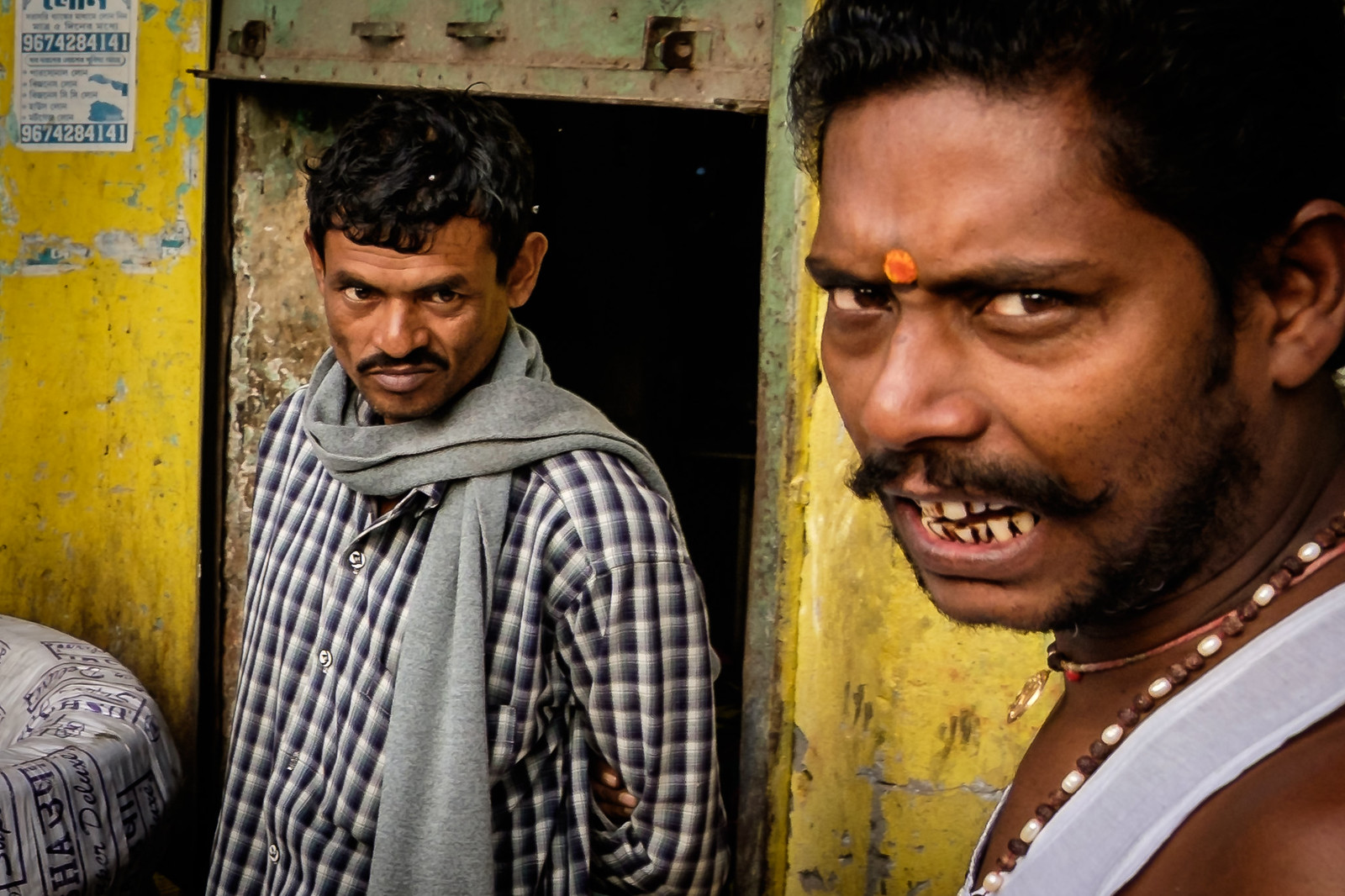
Untitled | kolkata 2017: photo by Koushik Sinha Roy, 3 December 2017


Untitled | kolkata 2017: photo by Koushik Sinha Roy, 3 December 2017
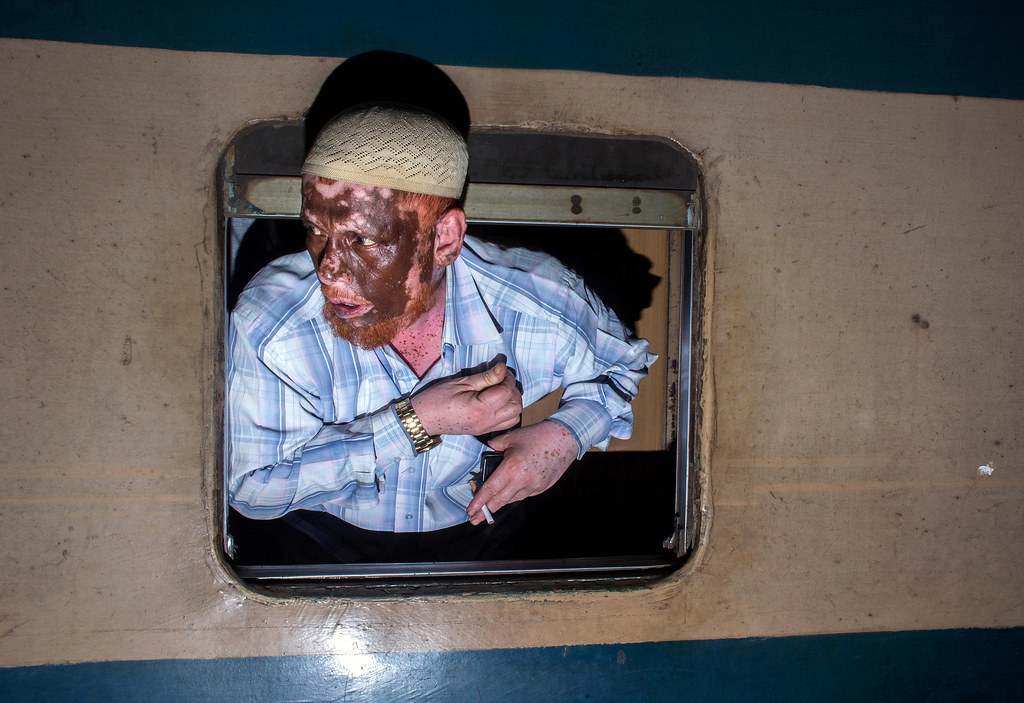
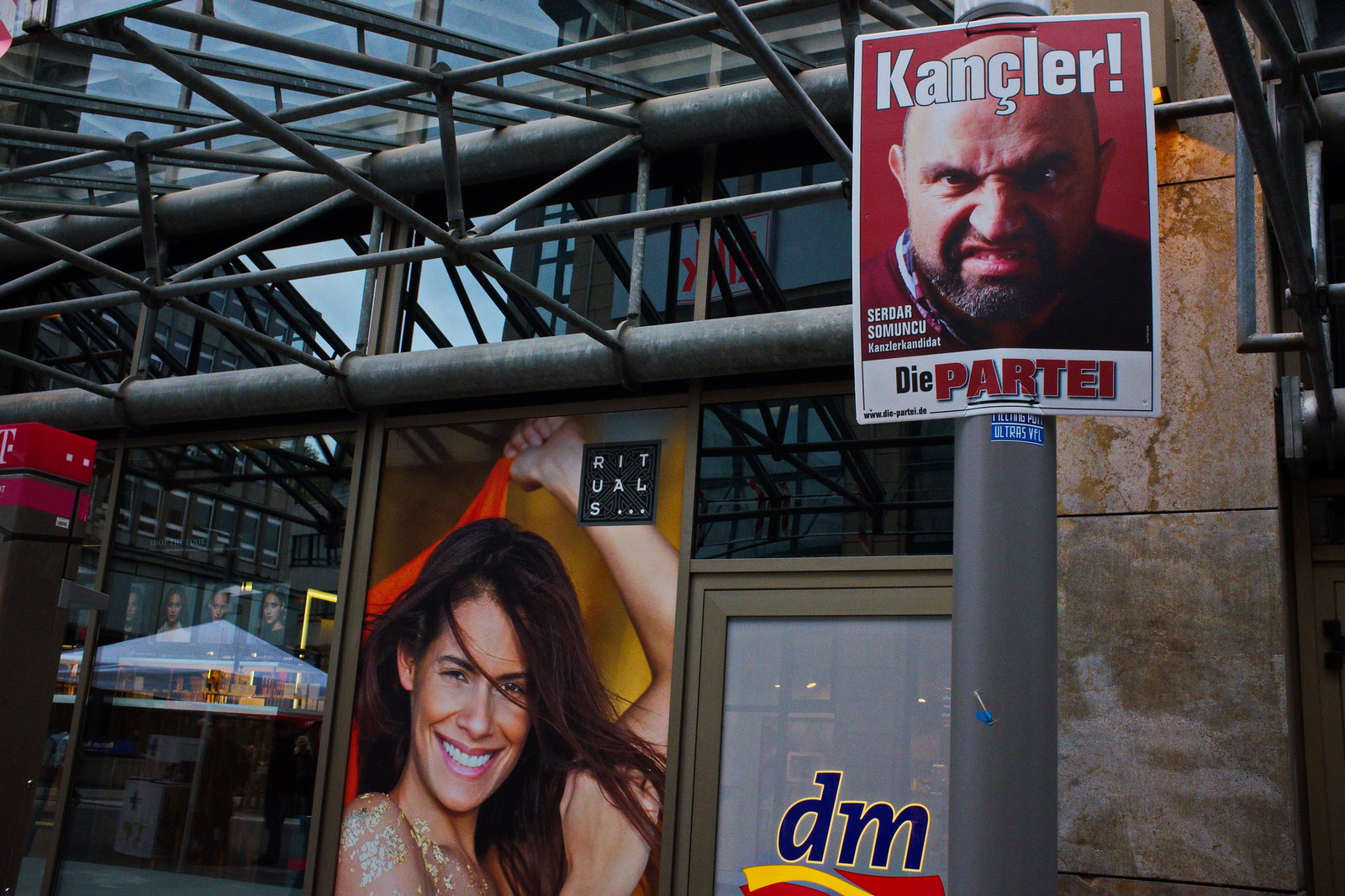
Greetings to Berlin. finally do your work. [Bochum]: photo by RadarO'Reilly, 11 October 2017

Dhaka | 2017: photo by Sohail Bin Mohammad, 18 July 2017

Greetings to Berlin. finally do your work. [Bochum]: photo by RadarO'Reilly, 11 October 2017


Greetings to Berlin. finally do your work. [Bochum]: photo by RadarO'Reilly, 11 October 2017
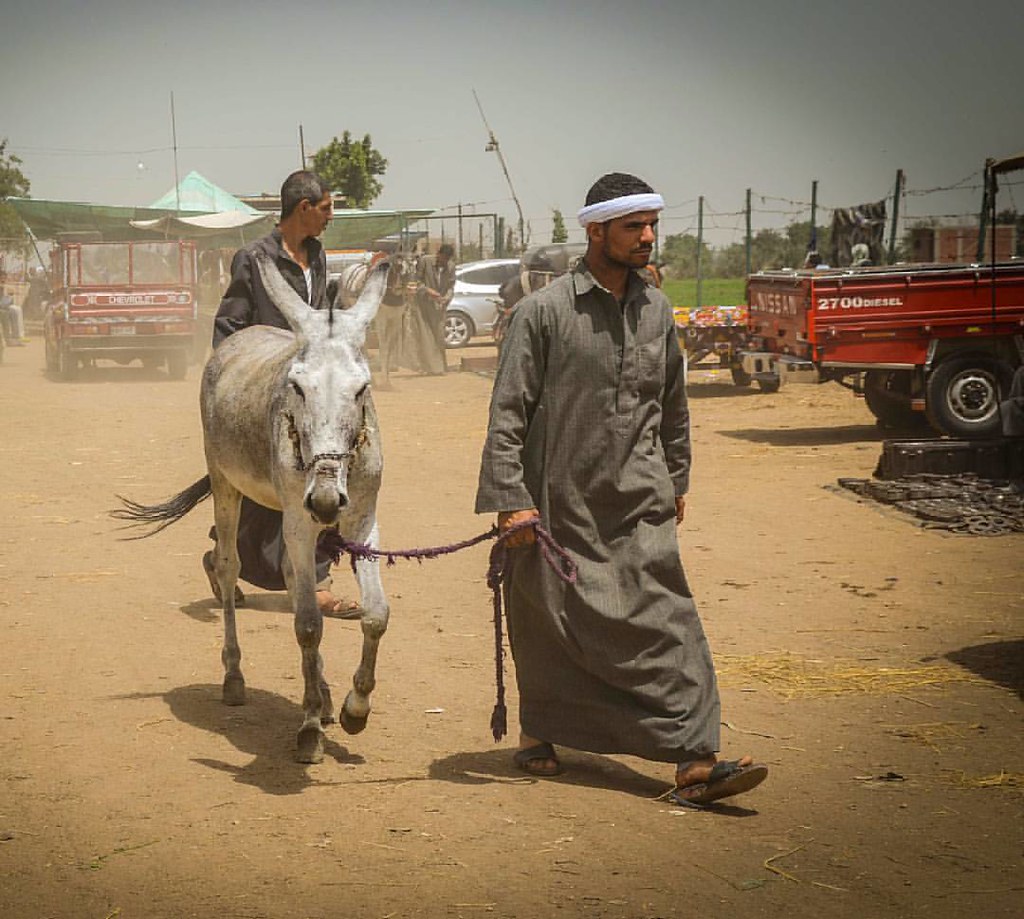
egyptian market, giza: photo by shaimaa sayede, 8 May 2017
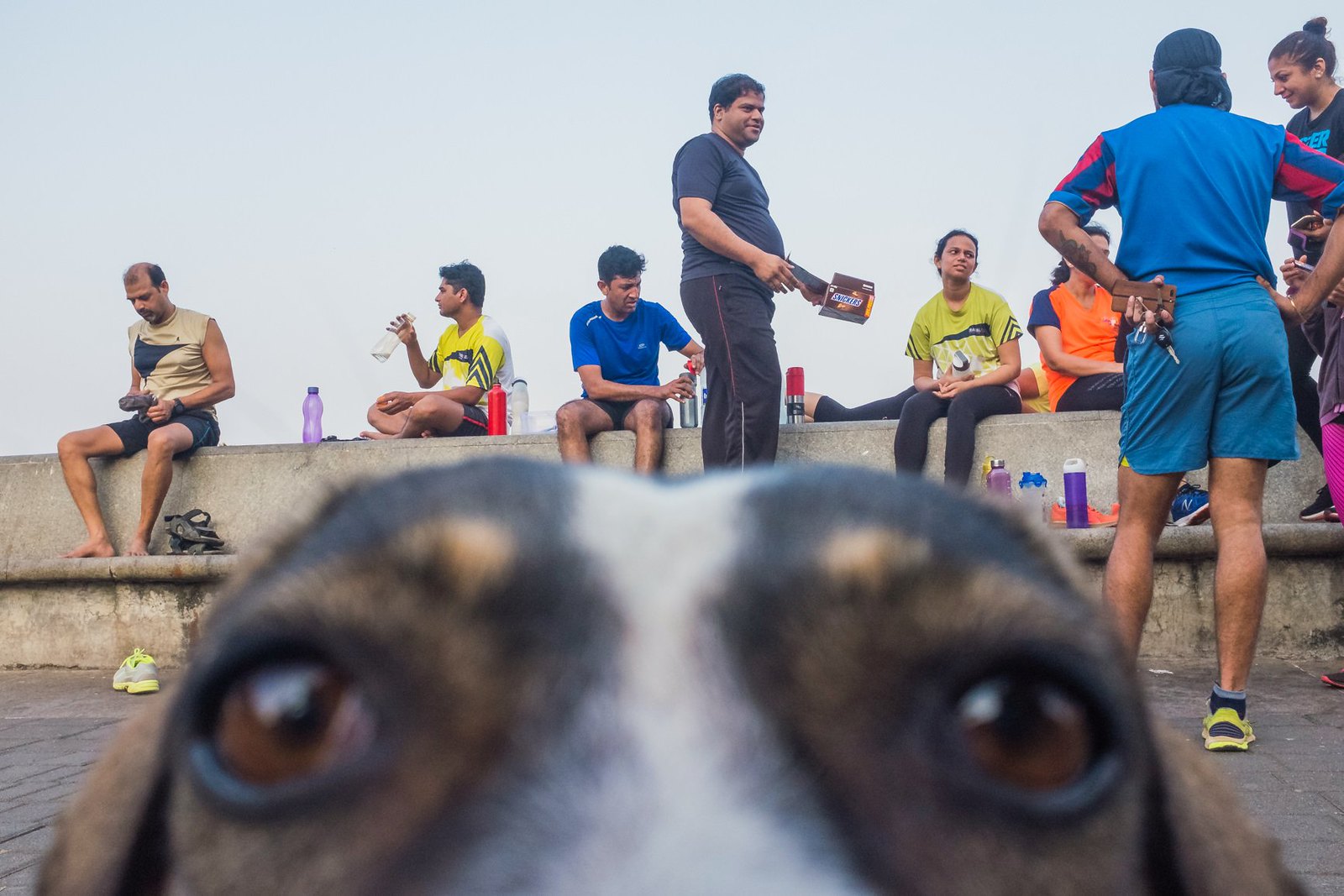

2017-12-01_12-20-47: photo by Suresh Naganathan, 25 November 2017
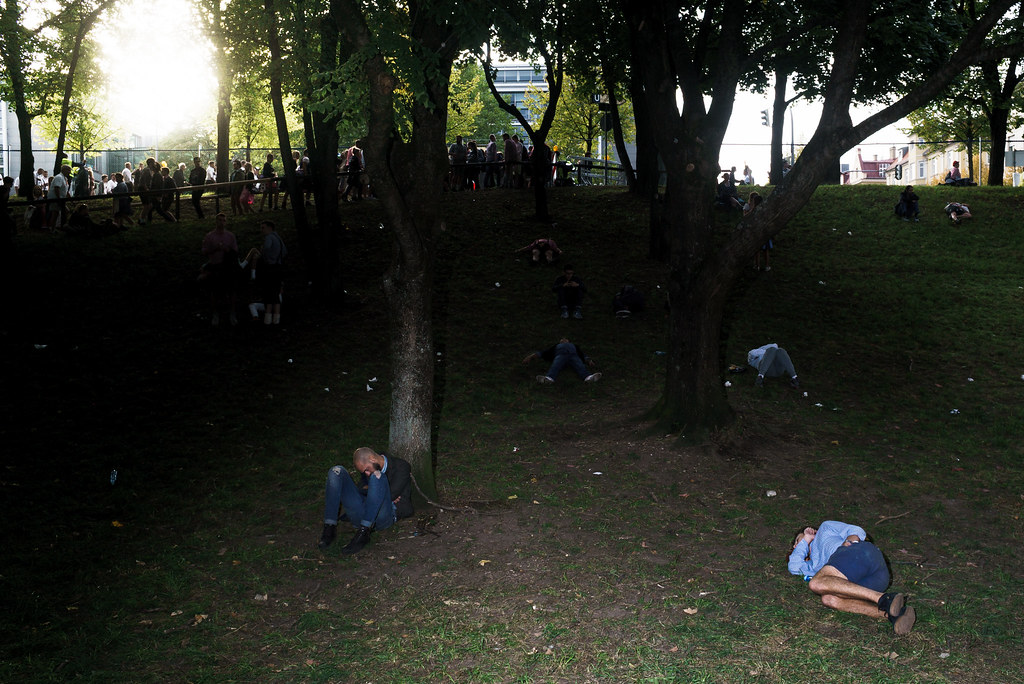
Oktoberfesta #7: photo by Riccardo Cattaneo, 29 November 2017
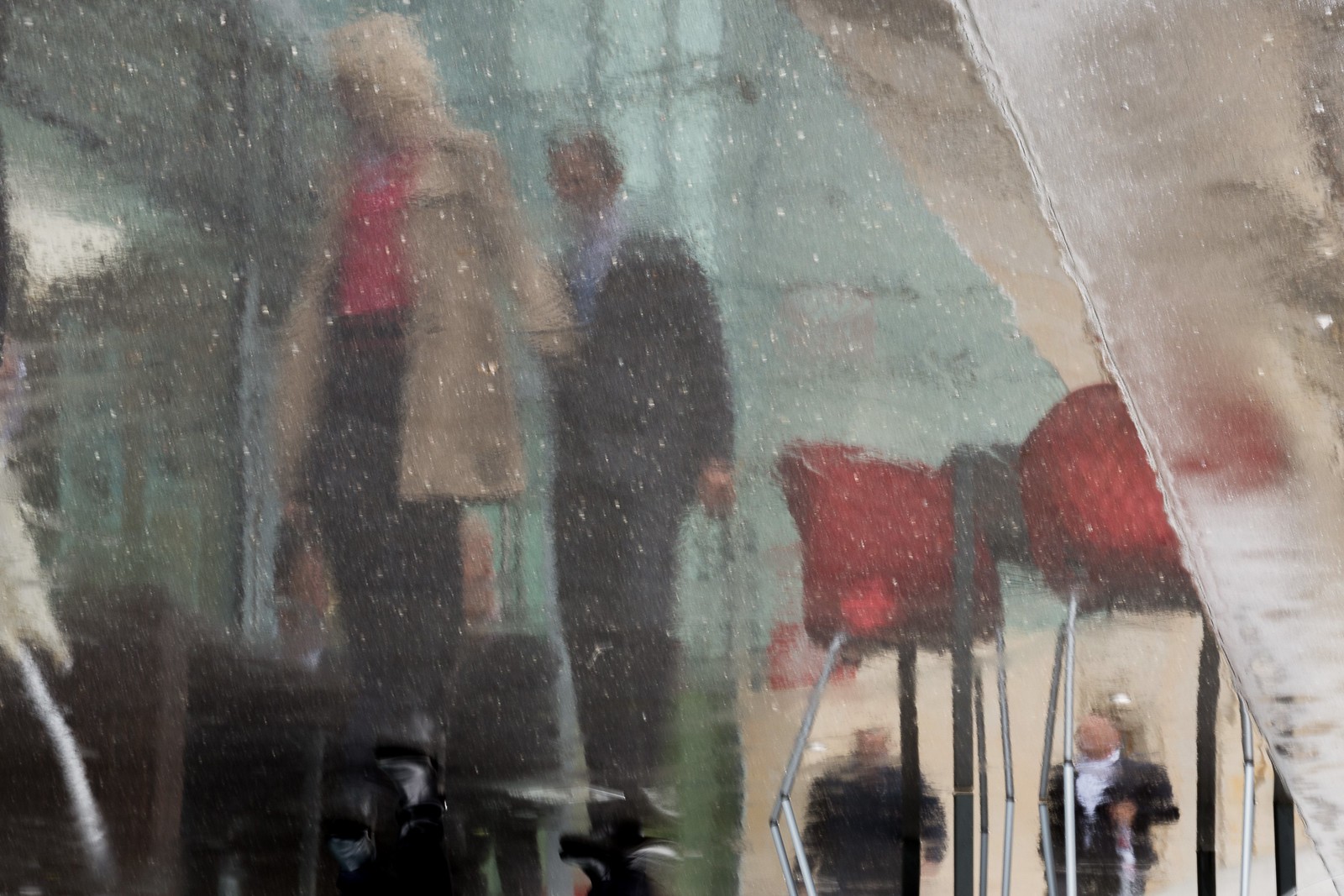
drowned [frankfurt]: photo by knipserkrause, 13 September 2017

drowned [frankfurt]: photo by knipserkrause, 13 September 2017

drowned [frankfurt]: photo by knipserkrause, 13 September 2017
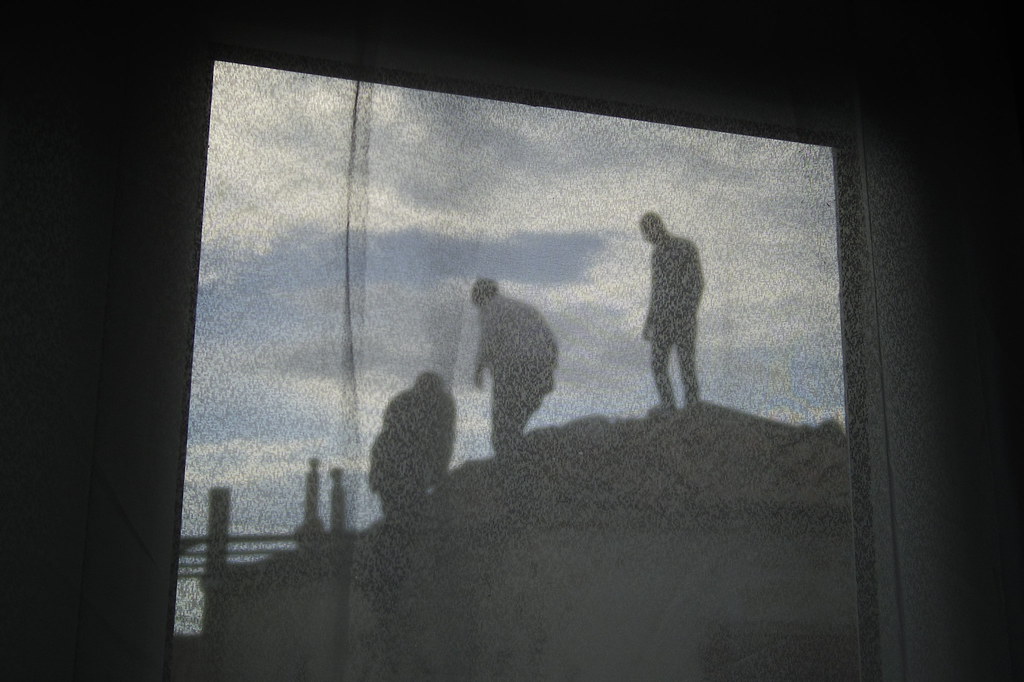
them: photo by delightfully jaded, 25 November 2017
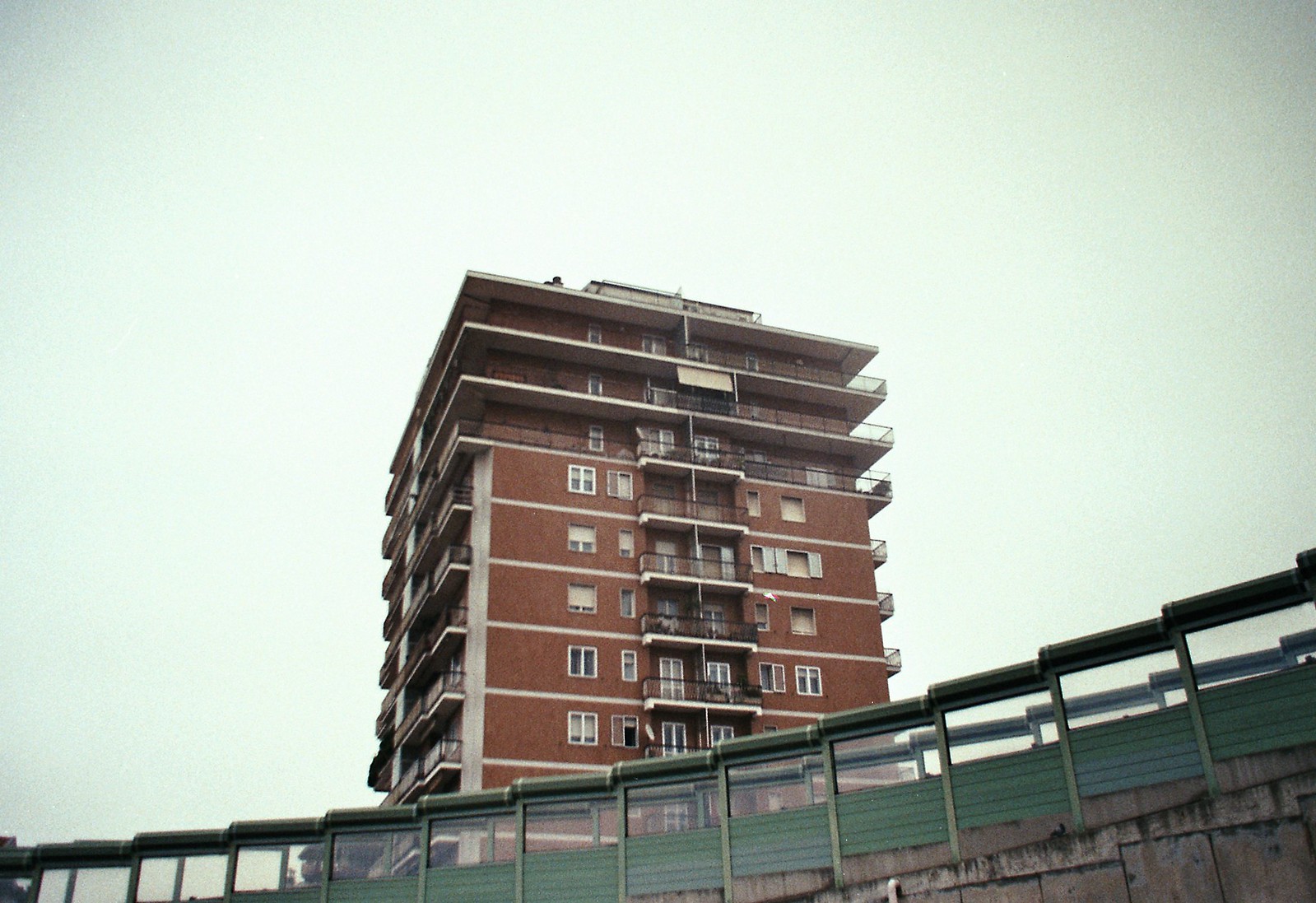
Untitled [montesilvano]: photo by Marco, 2 December 2017

Untitled [montesilvano]: photo by Marco, 2 December 2017

Untitled [montesilvano]: photo by Marco, 2 December 2017
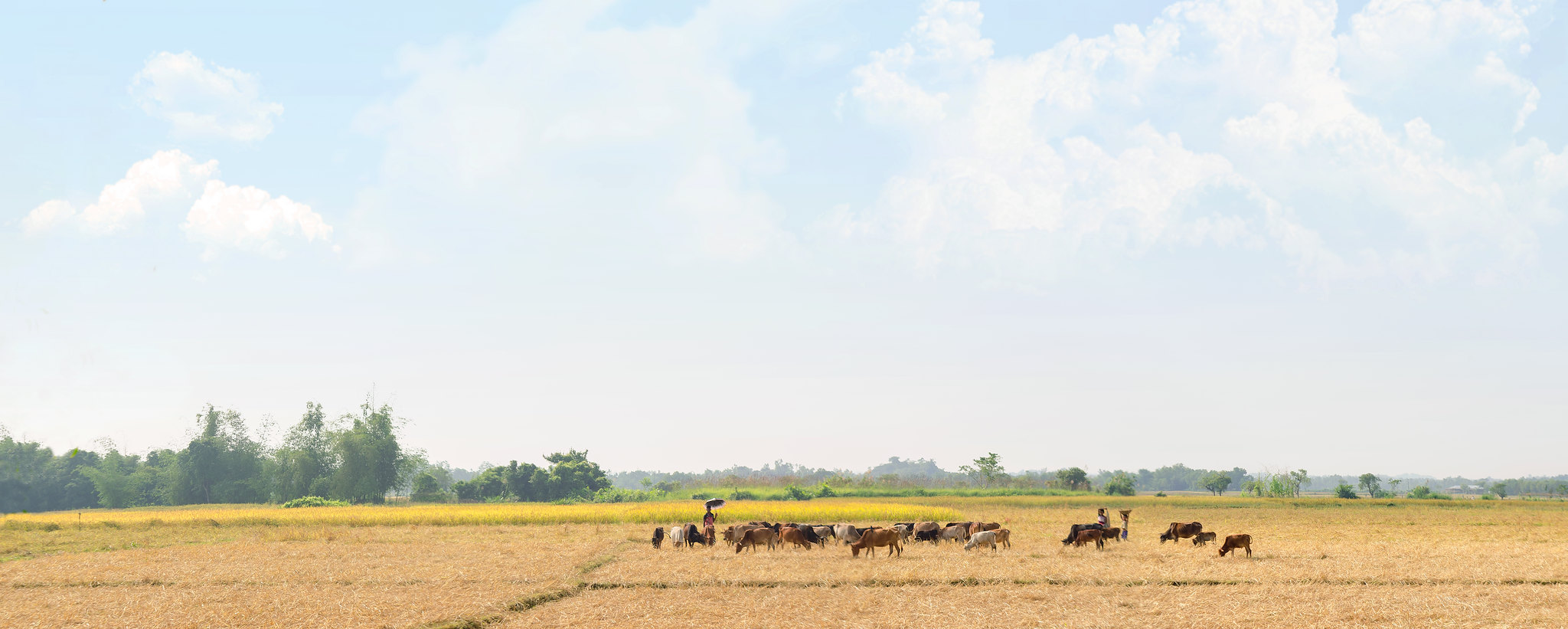
Panorama. Gowainghat, Sylhet | 24 November 2017: photo by Asif Shifat, 2 December 2017

Panorama. Gowainghat, Sylhet | 24 November 2017: photo by Asif Shifat, 2 December 2017

Panorama. Gowainghat, Sylhet | 24 November 2017: photo by Asif Shifat, 2 December 2017
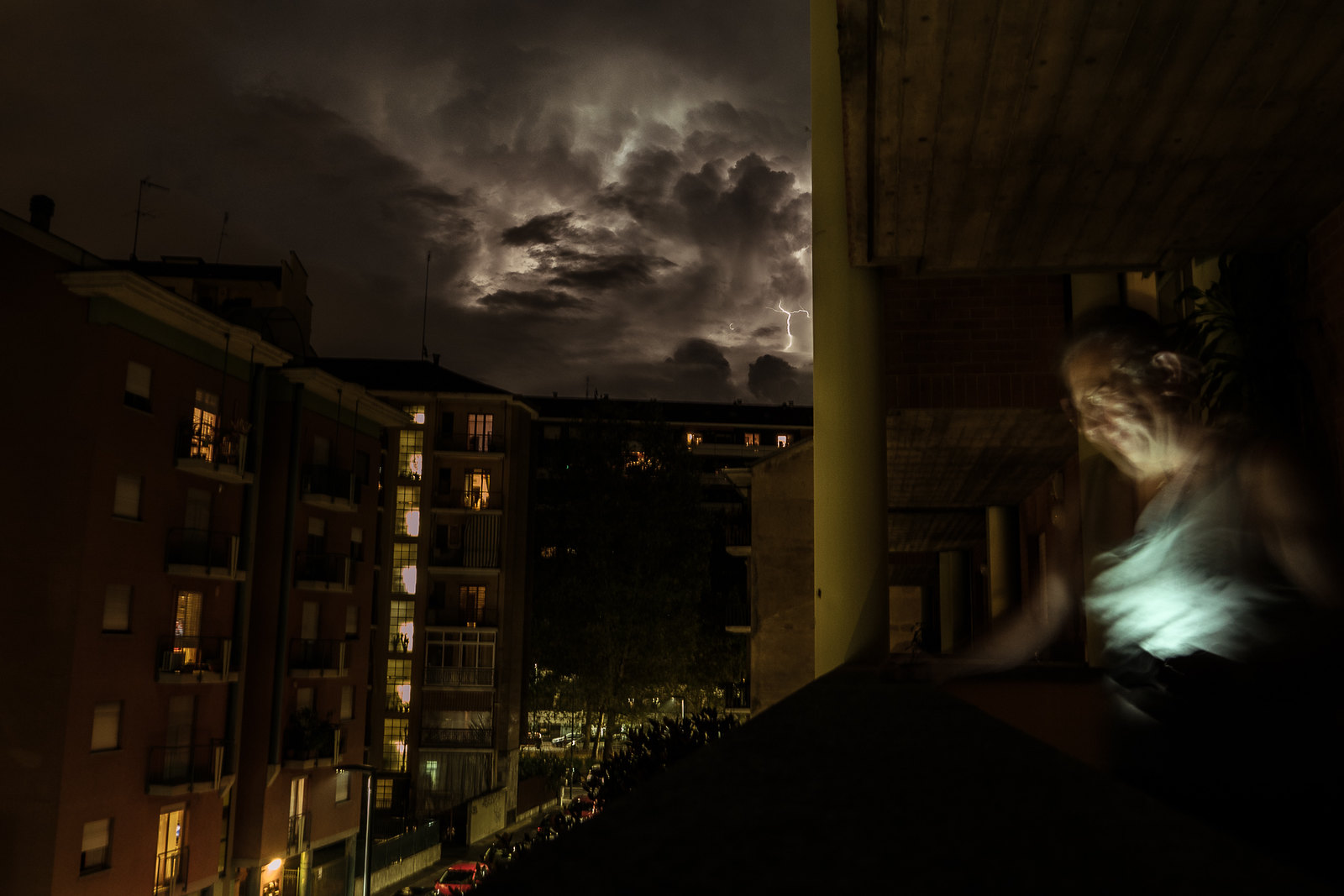
Untitled: photo by Marco Criniti, 30 October 2017

Untitled: photo by Marco Criniti, 30 October 2017

Untitled: photo by Marco Criniti, 30 October 2017
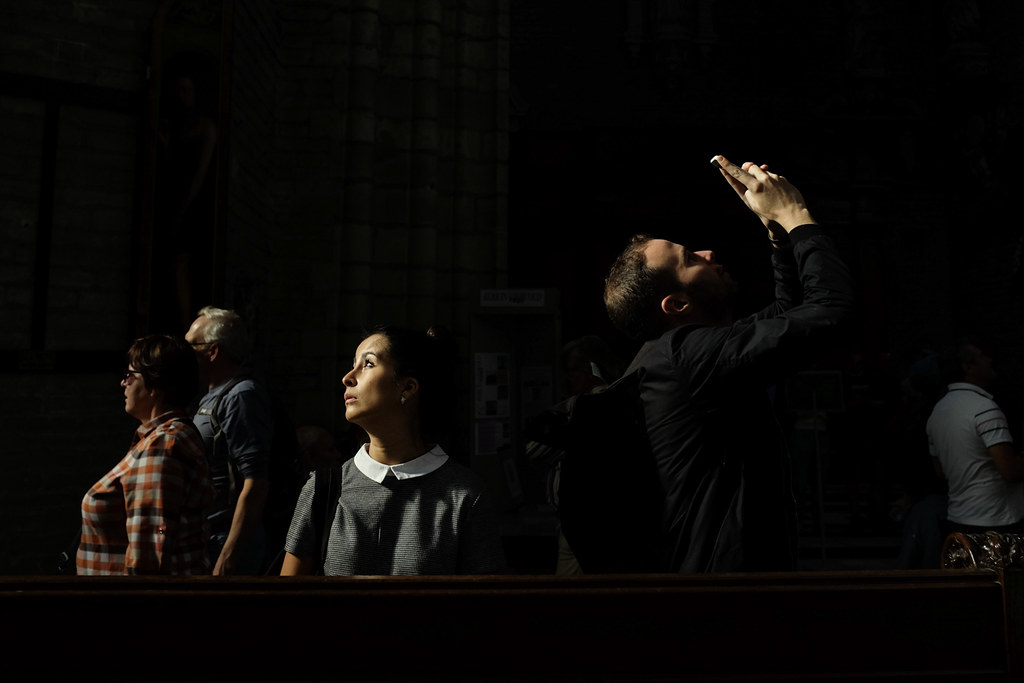
Untitled [Ghent]: photo by Kristin Van den Eede, 26 November 2017
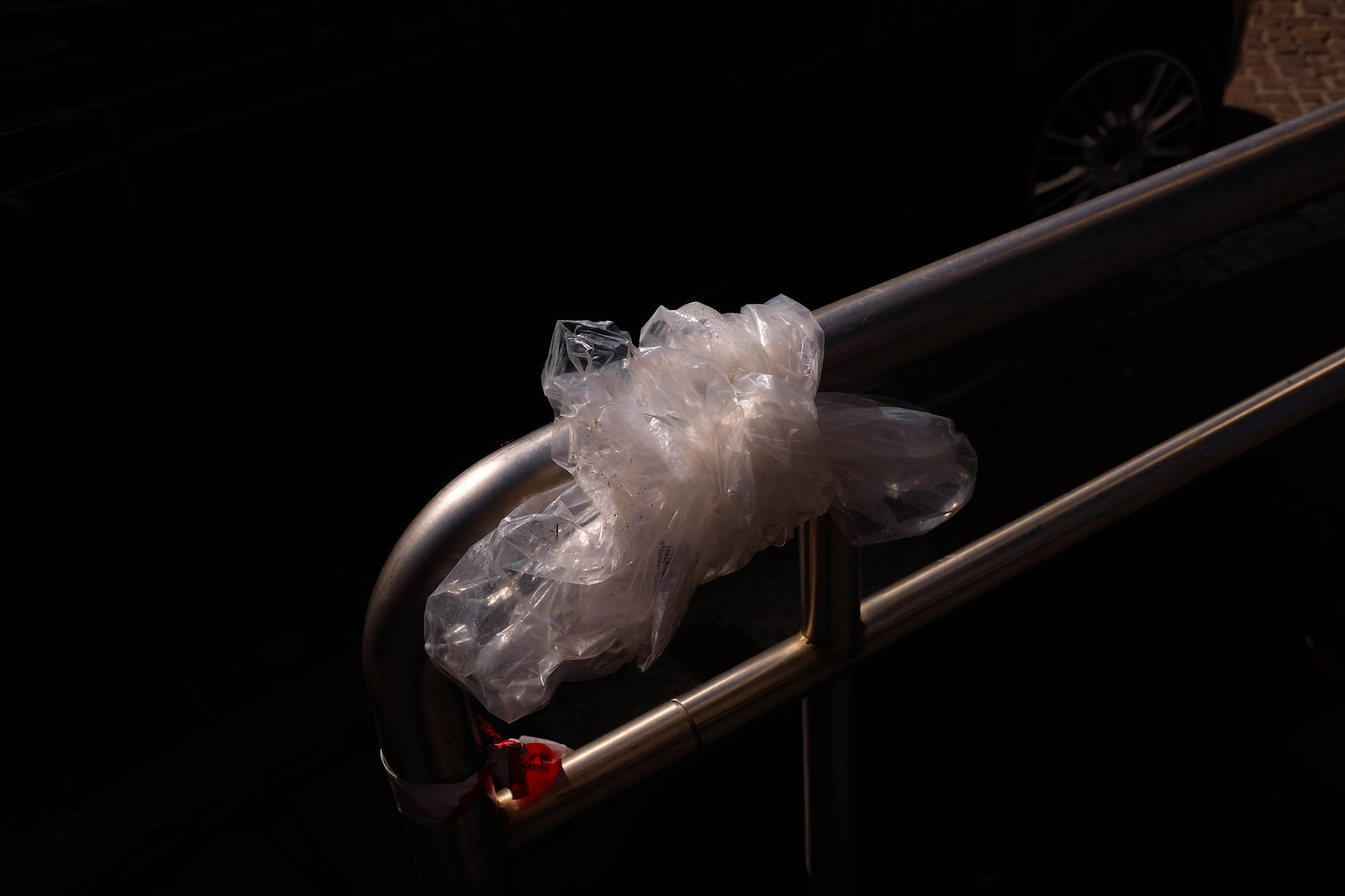
I remember in the future I will be full of memories [Milano]: photo by Fabio Secchia, 7 October 2017

I remember in the future I will be full of memories [Milano]: photo by Fabio Secchia, 7 October 2017

I remember in the future I will be full of memories [Milano]: photo by Fabio Secchia, 7 October 2017

Untitled [kiev]: photo by del Rey., 30 November 2017

Untitled [kiev]: photo by del Rey., 30 November 2017

Untitled [kiev]: photo by del Rey., 30 November 2017
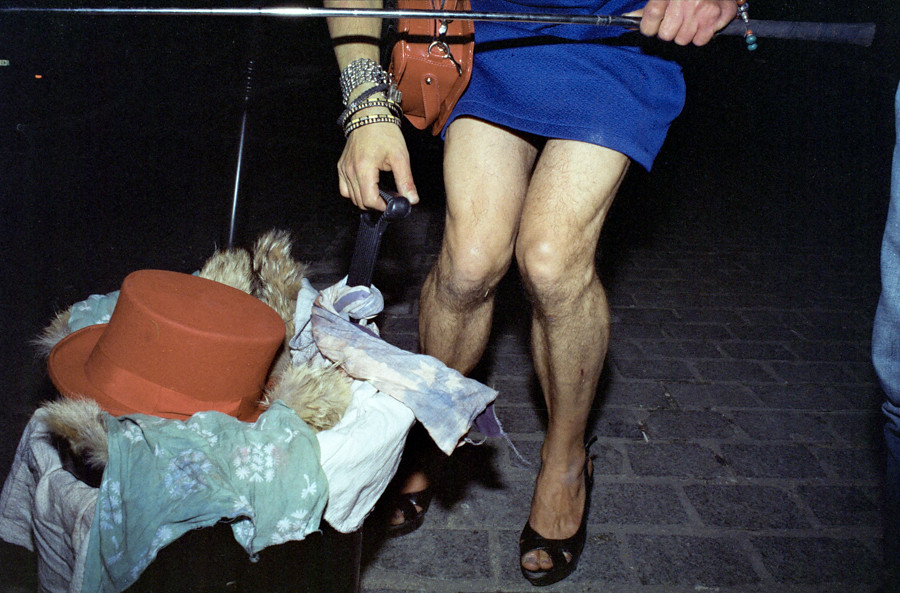
Sans titre [rue argentique, paris]: photo by Marco Giusfredi, 27 November 2017
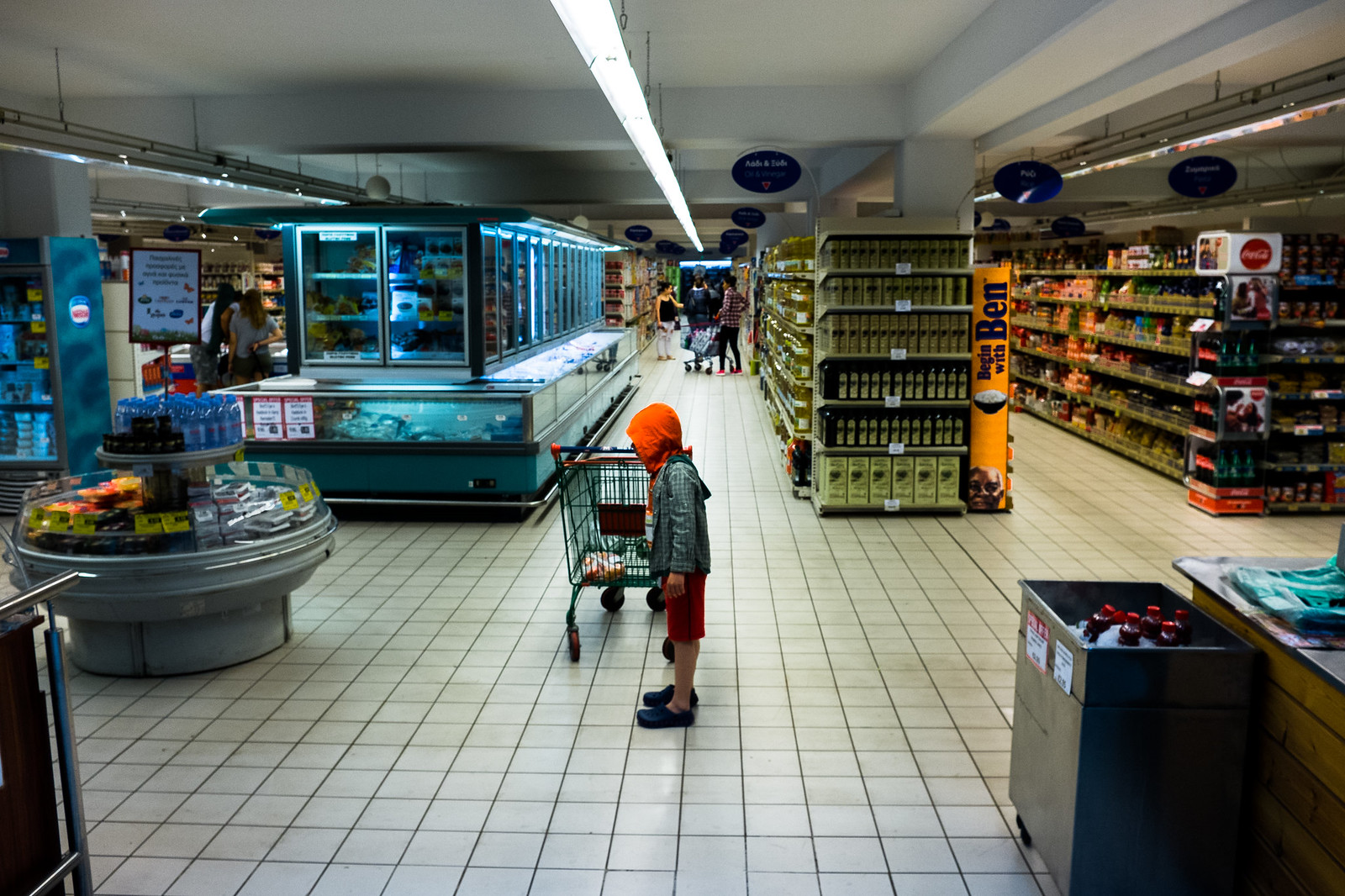
DSCF1549: photo by Andreas Tselopos, 29 April 2017

DSCF1549: photo by Andreas Tselopos, 29 April 2017

DSCF1549: photo by Andreas Tselopos, 29 April 2017
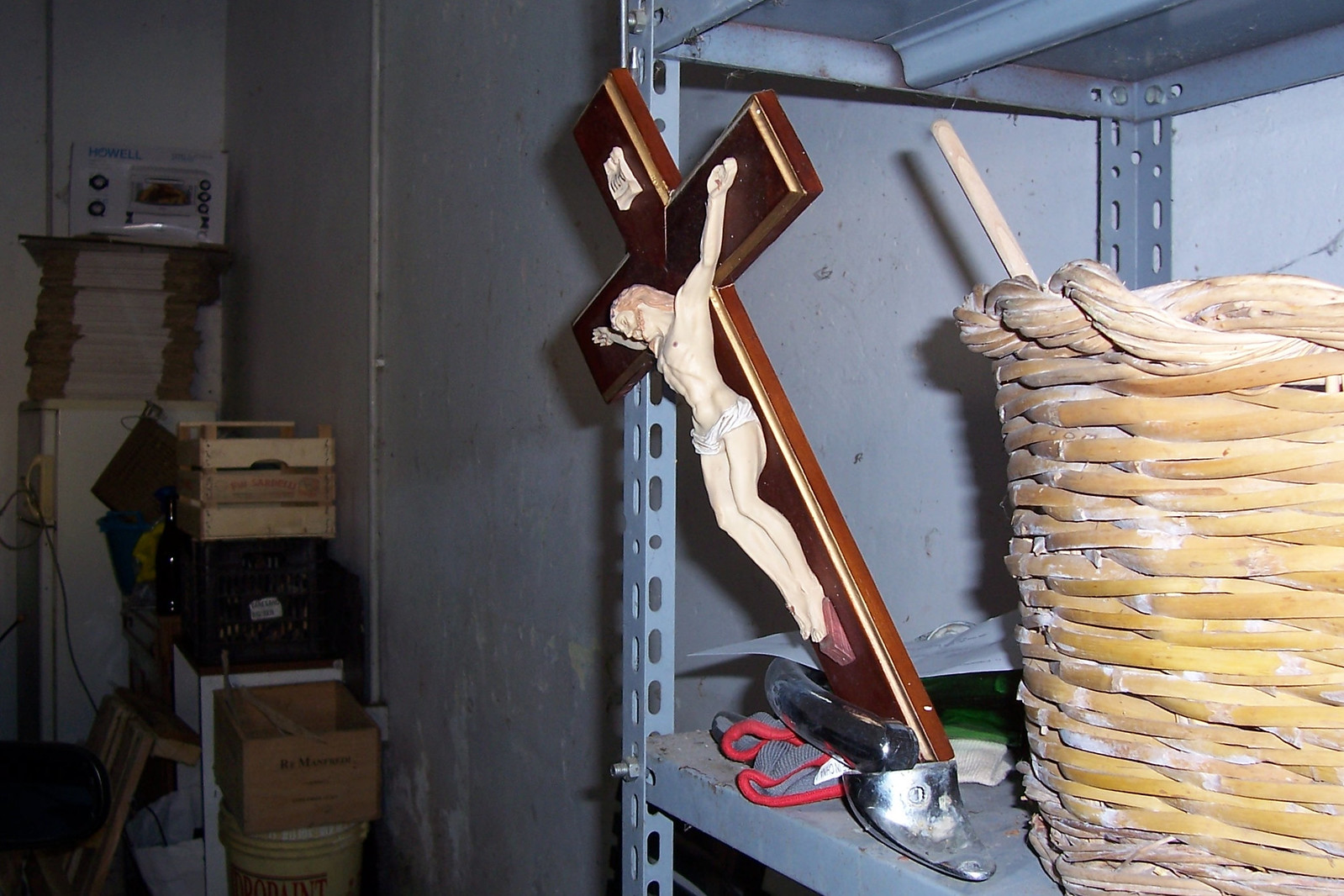
100_8604: photo by Francesco Luppolo, 22 March 2017

100_8604: photo by Francesco Luppolo, 22 March 2017

100_8604: photo by Francesco Luppolo, 22 March 2017

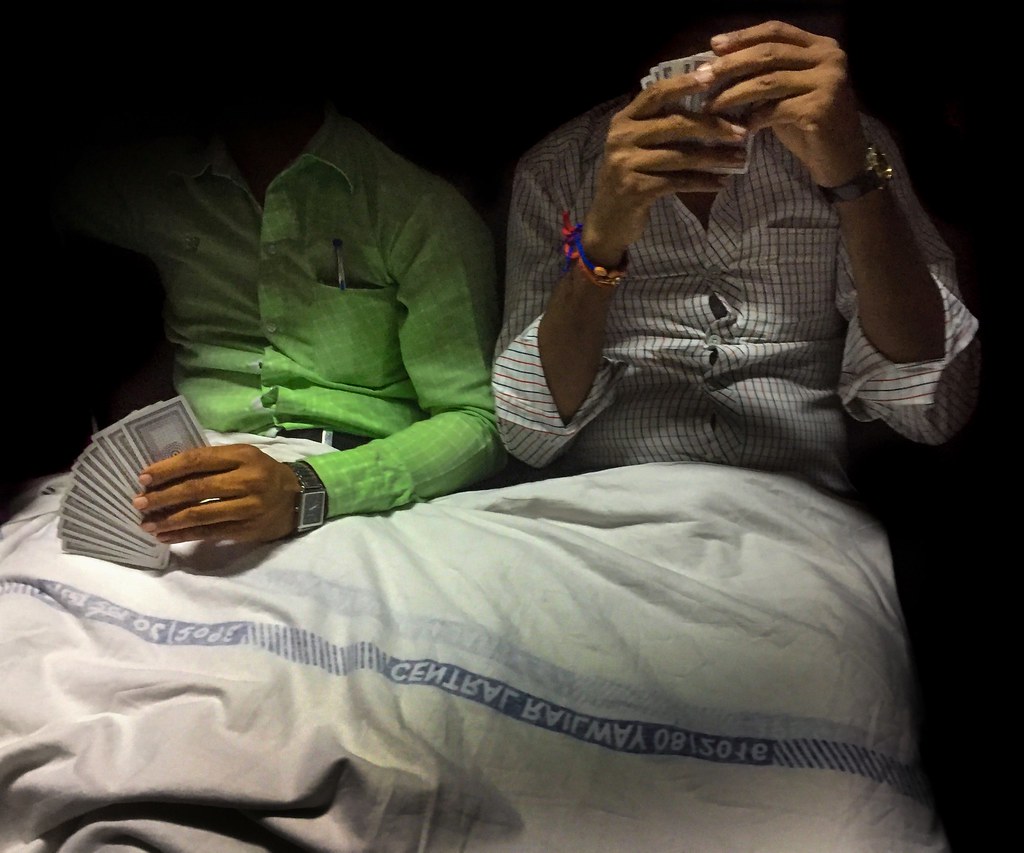
Towards Bhopal, India: photo by Silvia Alessi, 13 August 2017
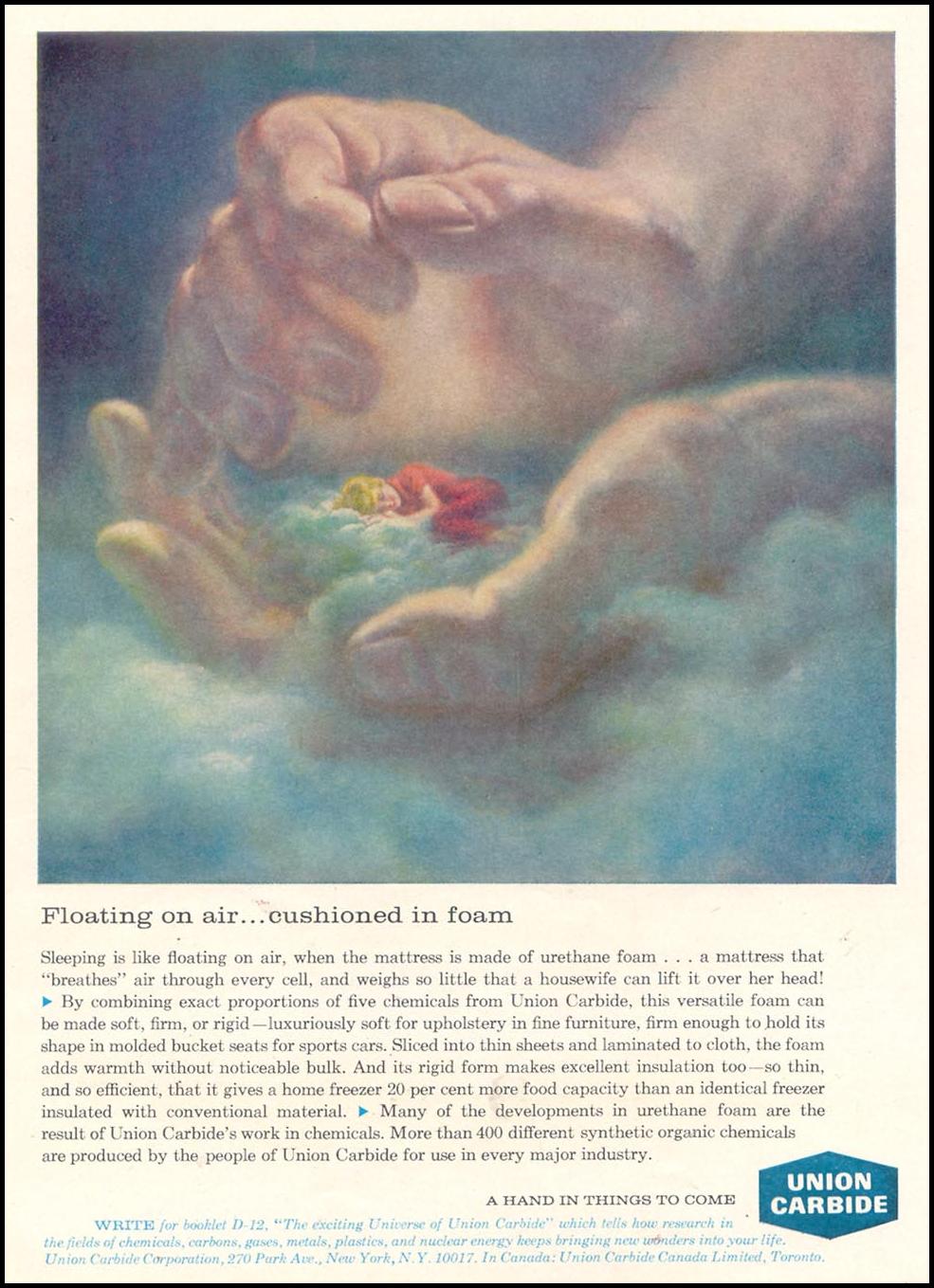
Union Carbide advertisement for industrial chemicals: Nat White, Time, 25 October 1963 (Gallery of Graphic Design)

Union Carbide advertisement for industrial chemicals: Nat White, Time, 25 October 1963 (Gallery of Graphic Design)
Tristram Shandy: The Siege of Namur by Captain Shandy and Corporal Trim

The Siege of Namur by Captain Shandy and Corporal Trim: engraving by Henry Bunbury in The Life & Opinions of Tristram Shandy, Gentleman, published by J. Bretherton, London, 1773. Uncle Toby marching, with crutch under his left arm, pointing
with his right crutch towards the fortifications built on the bowling
green, where the gate of St. Nicolas is flanked on each side by a
jack-boot. In his left hand he holds the London Gazette. Trim, holding
up a pickaxe, marches in front of his master. Shandy Hall appears behind
the Gate of St. Nicolas. (British cartoon Collection, Library of Congress)
WHEN the town, with its works, was finished, my uncle Toby and the corporal began to run their first parallel-----not at random, or any how-----but from the same points and distances the allies had begun to run theirs; and regulating their approaches and attacks, by the accounts my uncle Toby received from the daily papers,---they went on, during the whole siege, step by step with the allies.
When the duke of Marlborough made a lodgment,-----my uncle Toby made a lodgment too.-----And when the face of a bastion was battered down, or a defence ruined,---the corporal took his mattock and did as much.---and so on;-----gaining ground, and making themselves masters of the works one after another, till the town fell into their hands.
To one who took pleasure in the happy state of others,--- there could not have been a greater sight in the world, than, on a post-morning, in which a practicable breach had been made by the duke of Marlborough, in the main body of the place,-----to have stood behind the horn beam hedge, and observed the spirit with which my uncle Toby, with Trim behind him, sallied forth;---the one with the Gazette in his hand,---the other with a spade on his shoulder to execute the contents.-----What an honest triumph in my uncle Toby's looks as he marched up to the ramparts! What intense pleasure swimming in his eye as he stood over the corporal, reading the paragraph ten times over to him, as he was at work, lest, peradventure, he should make the breach an inch too wide,--- or leave it an inch too narrow-----But when the chamade was beat, and the corporal helped my uncle up it, and followed with the colours in his hand, to fix them upon the ramparts---Heaven! Earth! Sea!-----but what avails apostrophe ?-----with all your elements, wet or dry, ye never compounded so intoxicating a draught.
Laurence Sterne (1713-1768): from The Life and Opinions of Tristram Shandy, Gentleman: Volume VI (1762), Chapter XXII

Union Carbide advertisement for Union Carbide Synthetic Chemicals: Nat White, Saturday Evening Post, 8 June 1955 (Gallery of Graphic Design)

Bhopal, India: photo by Silvia Alessi, 16 August 2017

Bhopal, India: photo by Silvia Alessi, 16 August 2017

Bhopal, India: photo by Silvia Alessi, 16 August 2017

Union Carbide advertisement for Union Carbide insecticides: Nat White, Time, 8 June 1953 (Gallery of Graphic Design)
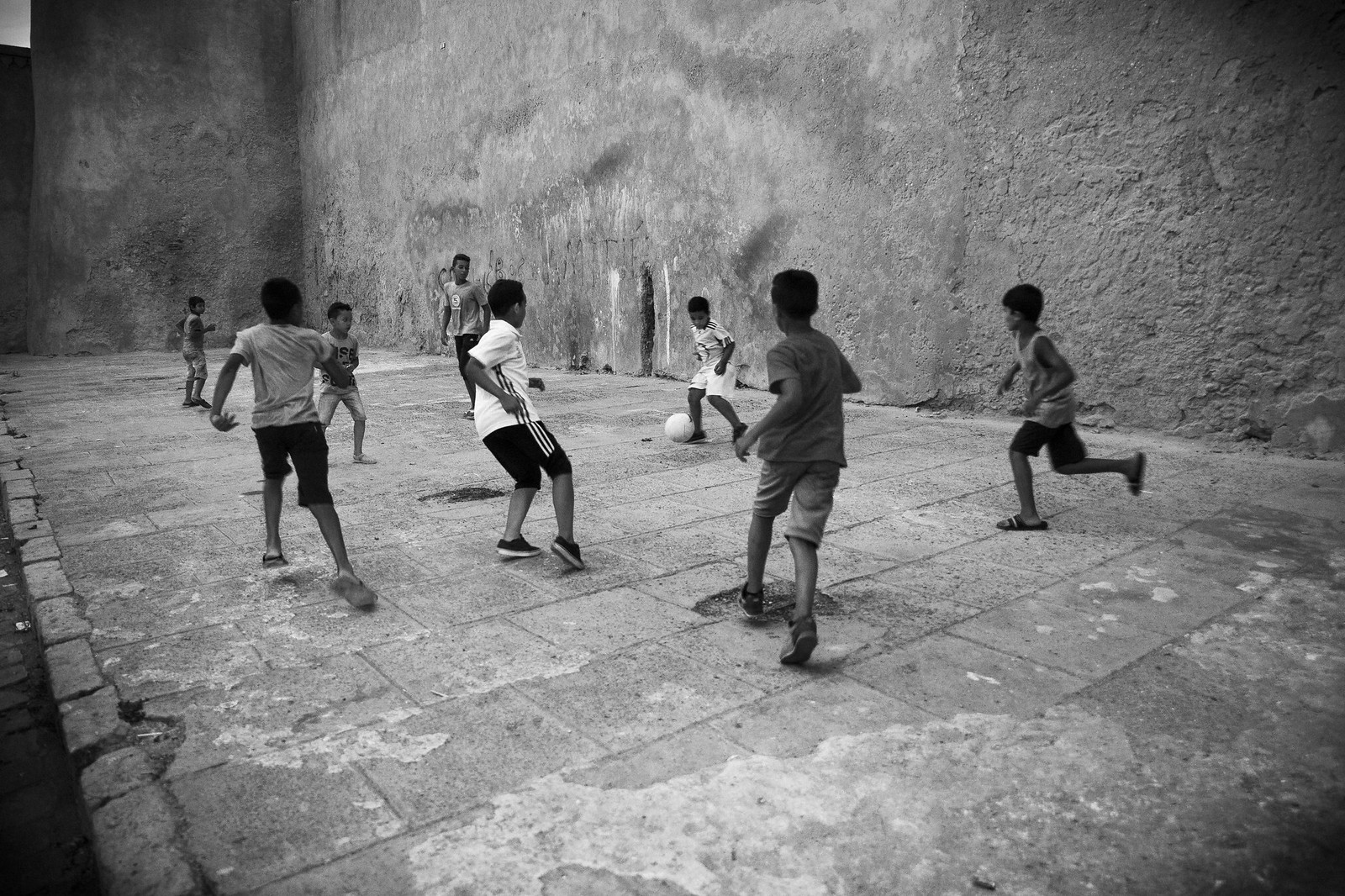
Untitled [Morocco]: photo by Andrea Fucà, 27 August 2017

Untitled [Morocco]: photo by Andrea Fucà, 27 August 2017

Untitled [Morocco]: photo by Andrea Fucà, 27 August 2017
Tokyo: photo by Bananocrate, 18 August 2014
![*コン! [コスプレ (Cosplay)] | by Bananocrate - バナノクラテ](https://c1.staticflickr.com/1/452/18992116450_b1c84c30a3_b.jpg)
Cosplay [Comicon, Napoli]: photo by Bananocrate, 26 June 2015
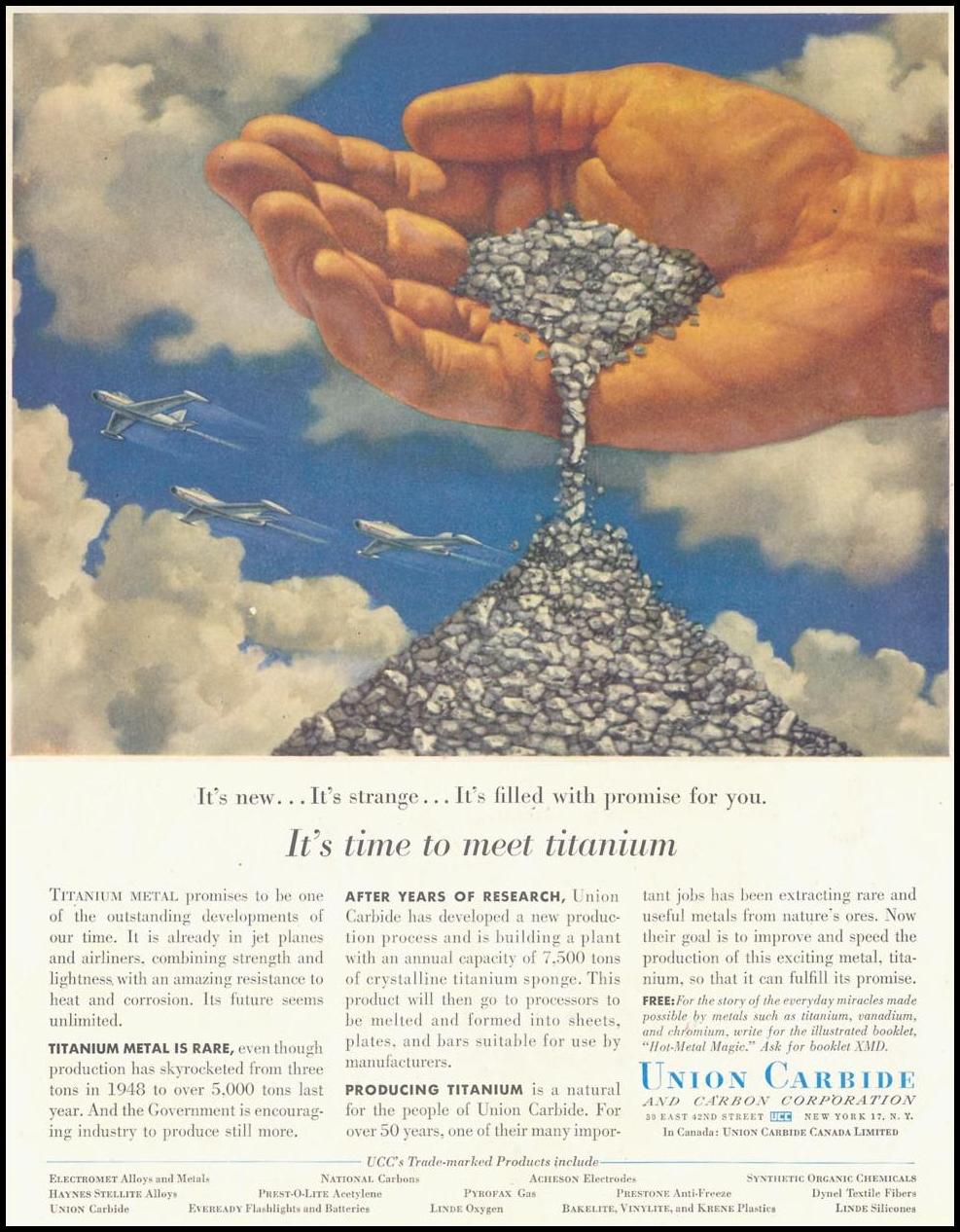
Union Carbide advertisement for Titanium: Nat White, Saturday Evening Post, 4 June 1955 (Gallery of Graphic Design)

DSC_8360: photo by soumitra saha, 3 December 2017

Union Carbide advertisement for American Chemical Society: Newsweek, 3 March 1951 (Gallery of Graphic Design)
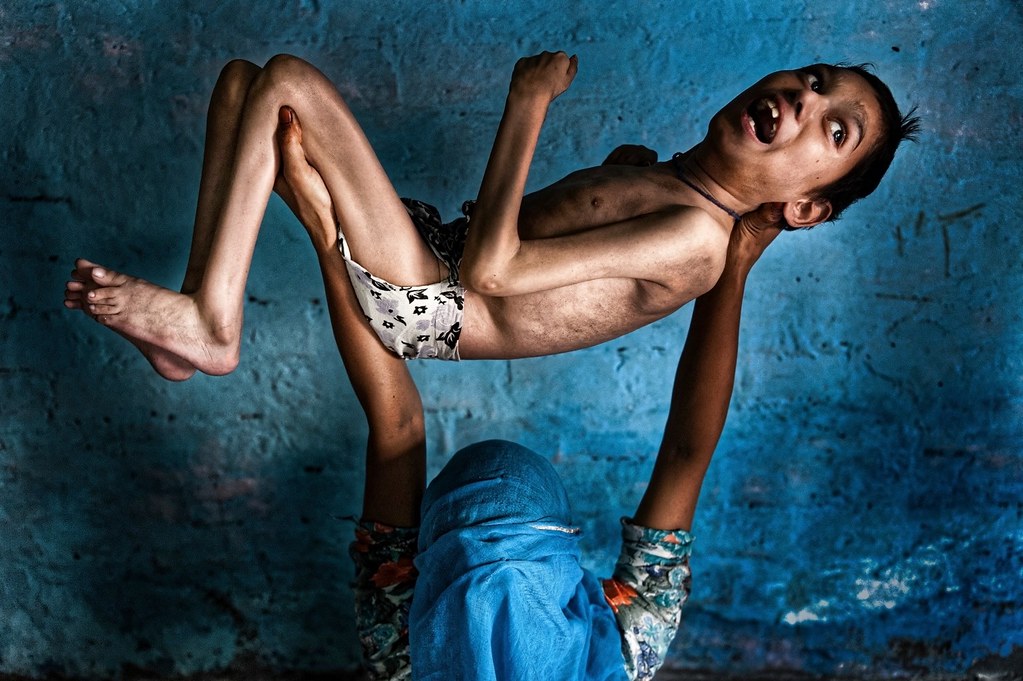
Bhopal: photo by Silvia Alessi, 3 December 2017

Union Carbide advertisement for industrial metals: Nat White, Time, 2 February 1962 (Gallery of Graphic Design)
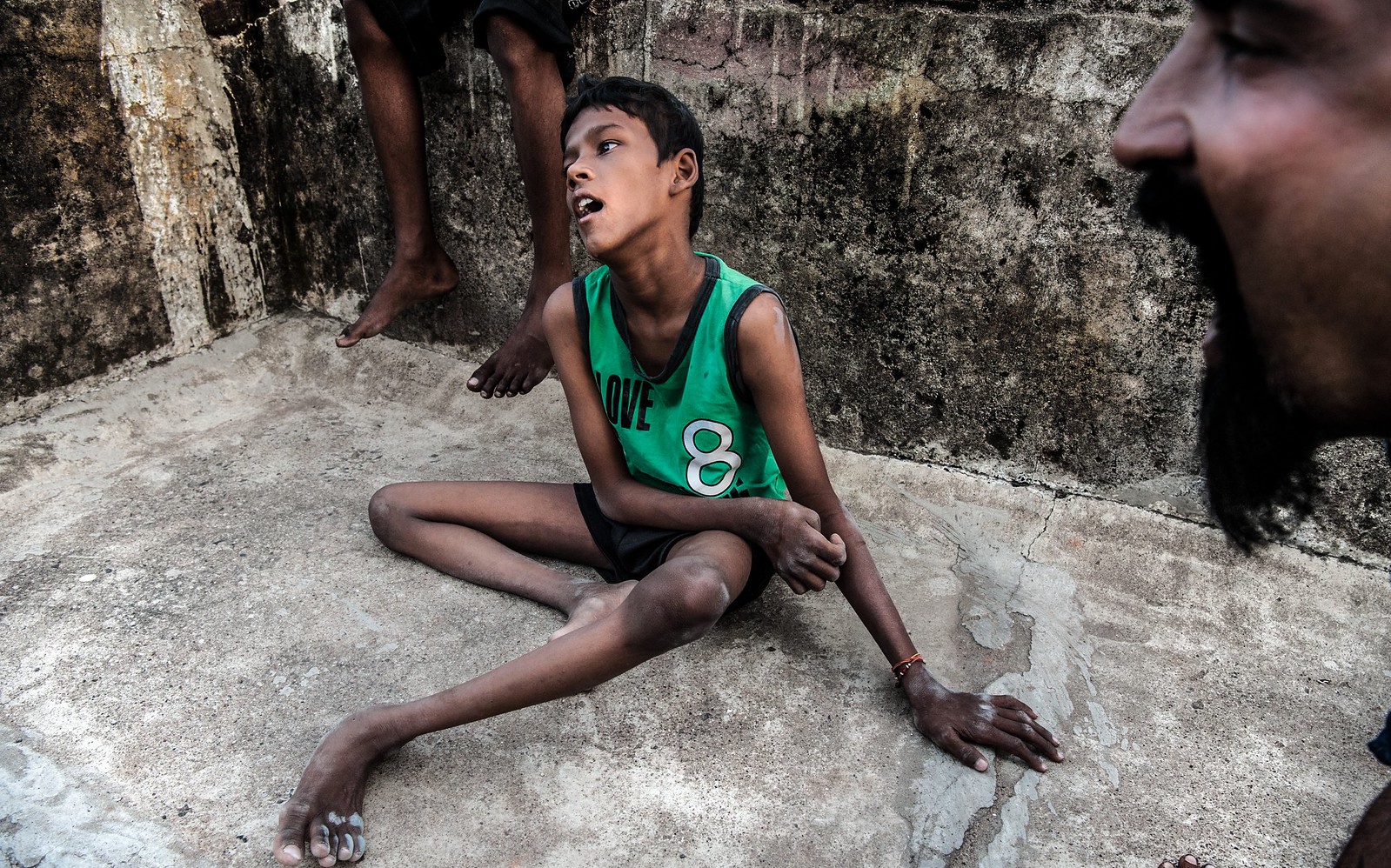
A Bhopal story: photo by Silvia Alessi, 16 August 2017

A Bhopal story: photo by Silvia Alessi, 16 August 2017

A Bhopal story: photo by Silvia Alessi, 16 August 2017
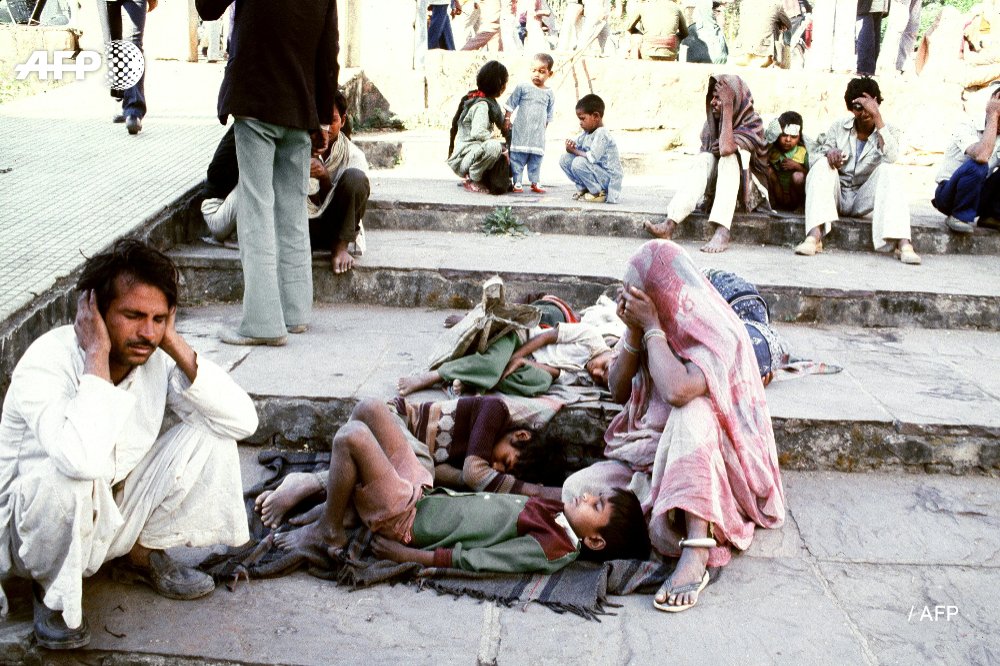
#OnThisDay in 1984, more than 3,700 people were killed after toxic gas leaked from an American-owned Union Carbide pesticide plant in Bhopal, India. It remains to this day the world's worst industrial disaster: image via AFP news agency @AFP, 3 December 2017
Union Carbide advertisement for industrial adhesives: Nat White, Saturday Evening Post, 9 April 1955 (Gallery of Graphic Design)

3 décembre 1984: en Inde, 40 tonnes de gaz toxique s'échappent de l'usine de pesticides du groupe américain Union Carbide à Bhopal. La plus grave catastrophe de l'histoire industrielle, a fait directement ou indirectement plus de 25.000 morts. Des victimes ayant perdu la vue #AFP: image via AFP Archives @AFPArchives, 3 December 2017
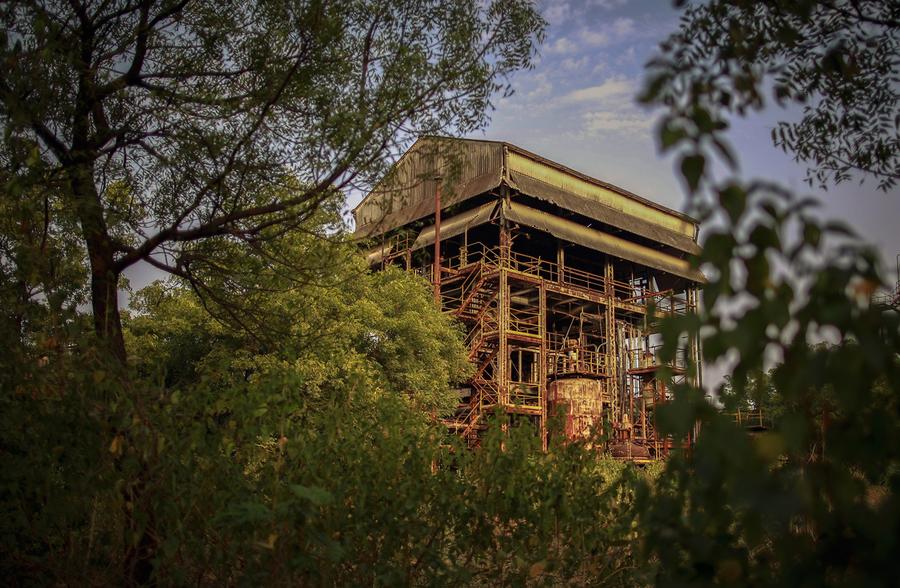
Trees frame a rusting building at the abandoned
former Union Carbide pesticide plant in Bhopal, India, on November 11,
2014. On the night of December 2, 1984, the factory owned by the U.S.
multinational Union Carbide Corporation accidentally leaked methyl
isocyanate and other highly toxic gases into the air, killing thousands
of largely poor Indians in the neighborhoods nearby.: photo by Danish Siddiqui, Reuters, 11 November 2014

Trees frame a rusting building at the abandoned
former Union Carbide pesticide plant in Bhopal, India, on November 11,
2014. On the night of December 2, 1984, the factory owned by the U.S.
multinational Union Carbide Corporation accidentally leaked methyl
isocyanate and other highly toxic gases into the air, killing thousands
of largely poor Indians in the neighborhoods nearby.: photo by Danish Siddiqui, Reuters, 11 November 2014

In December 1984, the entrance to the U.S.-owned Union Carbide plant in Bhopal, shortly after the release of poisonous gas.: photo by Peter Kemp/AP, December 1984

In December 1984, the entrance to the U.S.-owned Union Carbide plant in Bhopal, shortly after the release of poisonous gas.: photo by Peter Kemp/AP, December 1984

Two men carry children blinded by the Union Carbide chemical gas leak to a hospital in Bhopal on December 5, 1984.: photo by Sondeep Shankar/AP, 5 December 2017


A photo from December 4, 1984, shows relatives surrounding victims of the Bhopal tragedy.: photo by Bedi/AFP/Getty Images, 4 December 1984

A photo from December 4, 1984, shows relatives surrounding victims of the Bhopal tragedy.: photo by Bedi/AFP/Getty Images, 4 December 1984

Thousands of animals perished in the disaster as well, poisoned by the huge gas leak. Photo taken on December 4, 1984.: photo by Thiang/AP, 4 December 1984

Thousands of animals perished in the disaster as well, poisoned by the huge gas leak. Photo taken on December 4, 1984.: photo by Thiang/AP, 4 December 1984

A victim of the Bhopal tragedy walks in the streets on December 4, 1984. In the background is the site of the factory.: photo by Bedi/AFP/Getty Images, 4 December 1984

A victim of the Bhopal tragedy walks in the streets on December 4, 1984. In the background is the site of the factory.: photo by Bedi/AFP/Getty Images, 4 December 1984

This photograph taken on December 17, 1984, shows bodies of victims lined up following a poison gas leak which killed thousands from the Union Carbide factory in Bhopal.: photo by Bedi/AFP/Getty Images, 17 December 1984

This photograph taken on December 17, 1984, shows bodies of victims lined up following a poison gas leak which killed thousands from the Union Carbide factory in Bhopal.: photo by Bedi/AFP/Getty Images, 17 December 1984
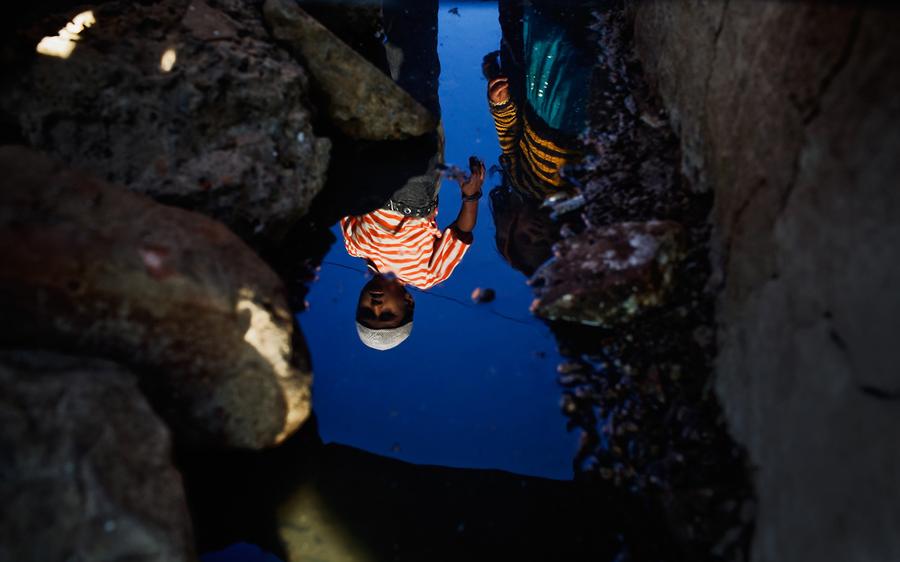
Children are reflected in groundwater, believed to be contaminated, near the site of the deserted Union Carbide factory on November 28, 2009 in Bhopal, India.: photo by Daniel Berehulak/Getty Images, 29 November 2009

Children are reflected in groundwater, believed to be contaminated, near the site of the deserted Union Carbide factory on November 28, 2009 in Bhopal, India.: photo by Daniel Berehulak/Getty Images, 29 November 2009

Fifteen year old Sachin Kumar crawls on his hands and knees through his home in a slum near the site of the deserted Union Carbide factory on November 30, 2009 in Bhopal, India. Sachin lives with his parents Suresh and Sangita, his 3 sisters, Jyoti, Arti and Punam and his brother Ravi, in a slum where a number of people affected by either water contamination or poison contamination have been relocated. Sachin was born with a birth defect rendering his legs practically useless. He had been receiving physical therapy treatment and education from the Chingari Trust rehabilitation Center for victims of the 1984 gas tragedy, however his health has taken a turn for the worse and his legs, now covered with open sores, restrict him from traveling to the major road where the Chingari Trust bus can pick him up for daily treatment. The oldest of four, Sachin spends his days playing board games with his friends and a rare game of cricket, which he sees as the fulfillment of his dreams of becoming a professional cricket player.: photo by Daniel Berehulak/Getty Images, 30 November 2009

Fifteen year old Sachin Kumar crawls on his hands and knees through his home in a slum near the site of the deserted Union Carbide factory on November 30, 2009 in Bhopal, India. Sachin lives with his parents Suresh and Sangita, his 3 sisters, Jyoti, Arti and Punam and his brother Ravi, in a slum where a number of people affected by either water contamination or poison contamination have been relocated. Sachin was born with a birth defect rendering his legs practically useless. He had been receiving physical therapy treatment and education from the Chingari Trust rehabilitation Center for victims of the 1984 gas tragedy, however his health has taken a turn for the worse and his legs, now covered with open sores, restrict him from traveling to the major road where the Chingari Trust bus can pick him up for daily treatment. The oldest of four, Sachin spends his days playing board games with his friends and a rare game of cricket, which he sees as the fulfillment of his dreams of becoming a professional cricket player.: photo by Daniel Berehulak/Getty Images, 30 November 2009

Partially blind gas victim waits for a verdict with other victims in the premises of Bhopal court in Bhopal, India, on June 7, 2010. An Indian court convicted seven former senior employees of Union Carbide's Indian subsidiary of "death by negligence" for their roles in the Bhopal gas tragedy that left thousands of people dead more than a quarter century previously in the world's worst industrial disaster.: photo by Prakash Hatvaln/AP, 7 June 2010

Partially blind gas victim waits for a verdict with other victims in the premises of Bhopal court in Bhopal, India, on June 7, 2010. An Indian court convicted seven former senior employees of Union Carbide's Indian subsidiary of "death by negligence" for their roles in the Bhopal gas tragedy that left thousands of people dead more than a quarter century previously in the world's worst industrial disaster.: photo by Prakash Hatvaln/AP, 7 June 2010
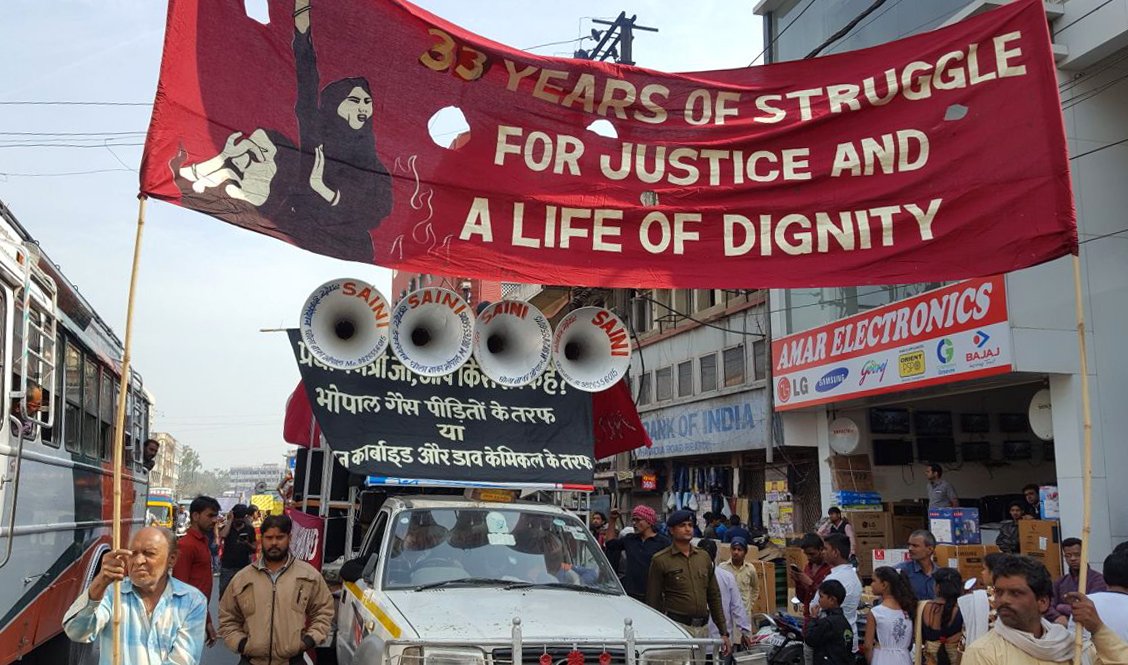
Today, in #Bhopal, five gas disaster survivors’ organisations marched to the abandoned Union Carbide factory where an effigy representing the boards of #UnionCarbide #DowChemical and #DuPont was burned.: image via Bhopal Medical Appeal @BhopalMedAppeal, 3 December 2017
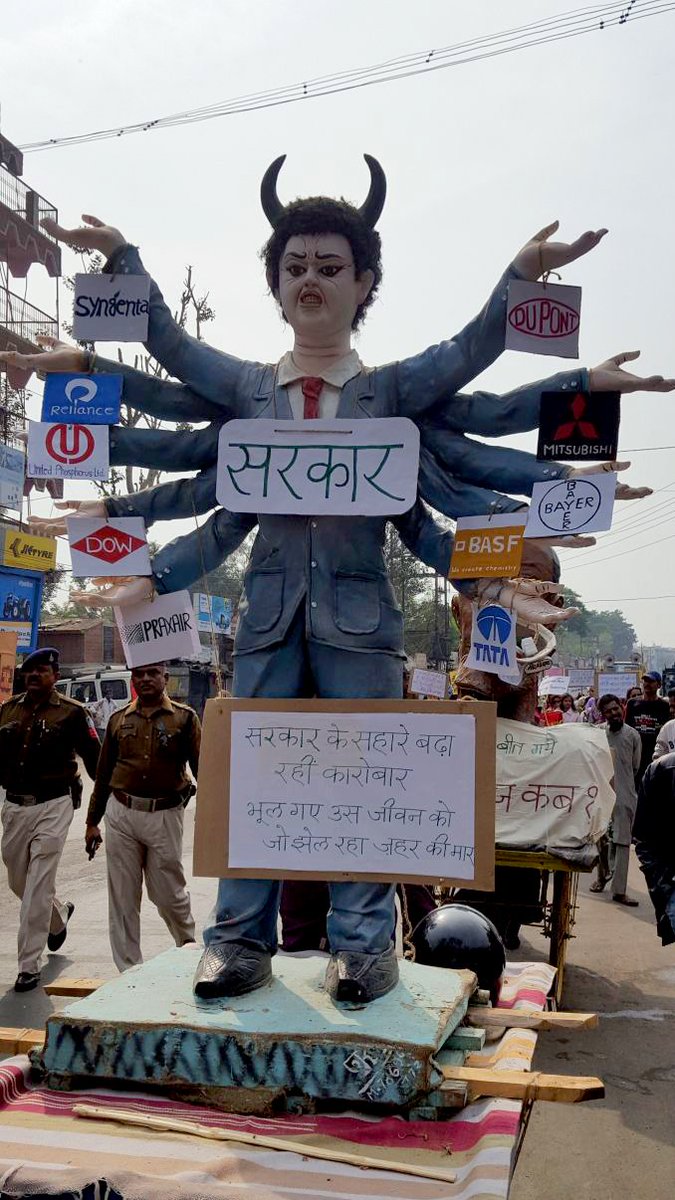
Today, in #Bhopal, five gas disaster survivors’ organisations marched to the abandoned Union Carbide factory where an effigy representing the boards of #UnionCarbide #DowChemical and #DuPont was burned.: image via Bhopal Medical Appeal @BhopalMedAppeal, 3 December 2017
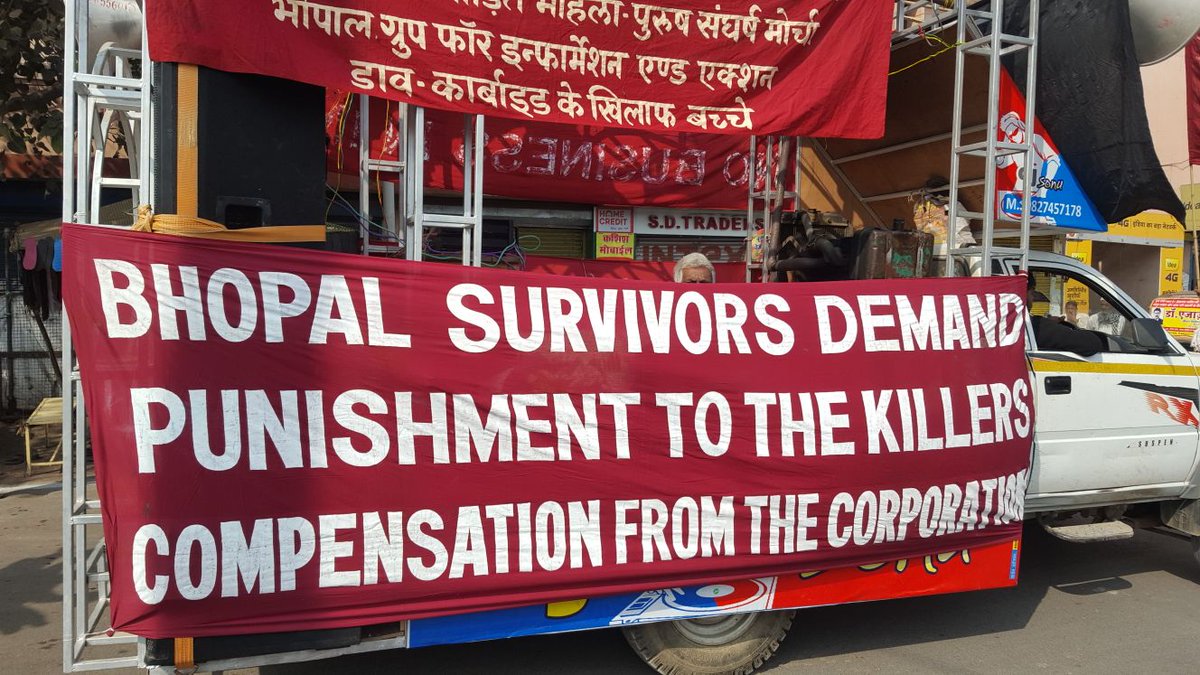
Today, in #Bhopal, five gas disaster survivors’ organisations marched to the abandoned Union Carbide factory where an effigy representing the boards of #UnionCarbide #DowChemical and #DuPont was burned.: image via Bhopal Medical Appeal @BhopalMedAppeal, 3 December 2017
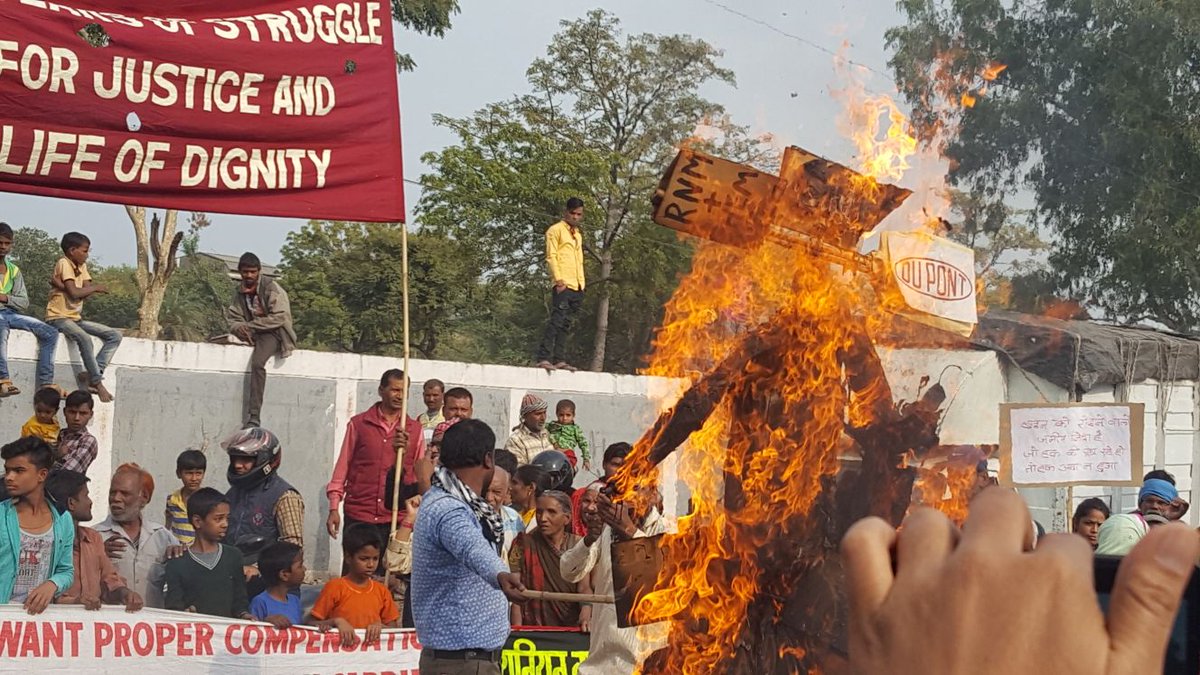
Today, in #Bhopal, five gas disaster survivors’ organisations marched to the abandoned Union Carbide factory where an effigy representing the boards of #UnionCarbide #DowChemical and #DuPont was burned.: image via Bhopal Medical Appeal @BhopalMedAppeal, 3 December 2017
Remembering the horrific #BhopalGasTragedy and its victims. @INCIndia owes both explanation and apology not only to #Bhopal but entire nation on How Union Carbide chief Warren Anderson was allowed to escape India. #Bhopal33: image via The Indian Nation @theindiannation, 2 December 2017
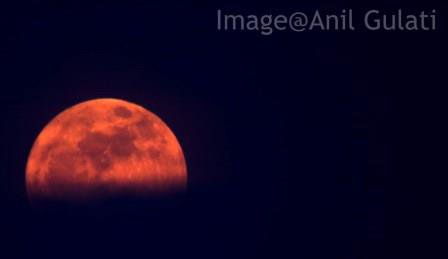
Rise of #Supermoon at #Bhopal @EarthandClouds @WeatherPhoto #moon: image via Anil Gulati @Anil5, 3 December 2017

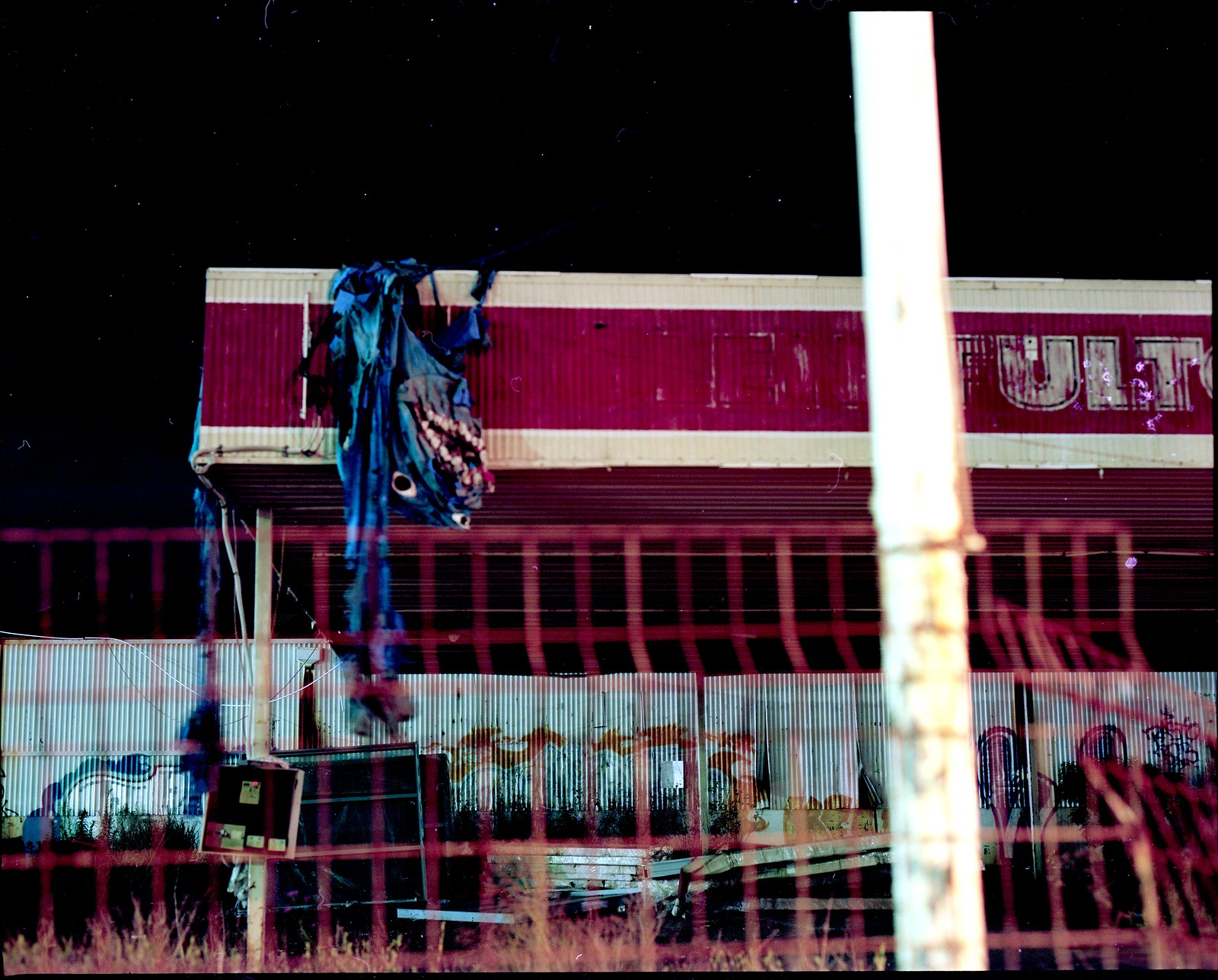
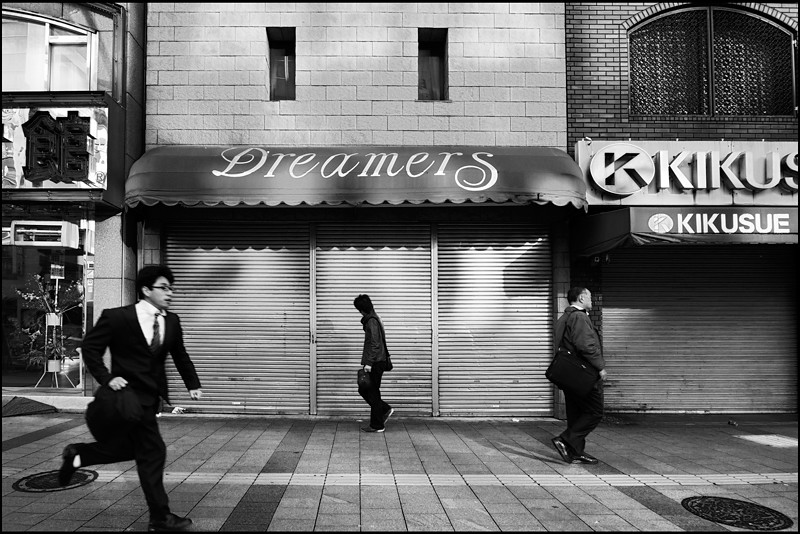





No comments:
Post a Comment